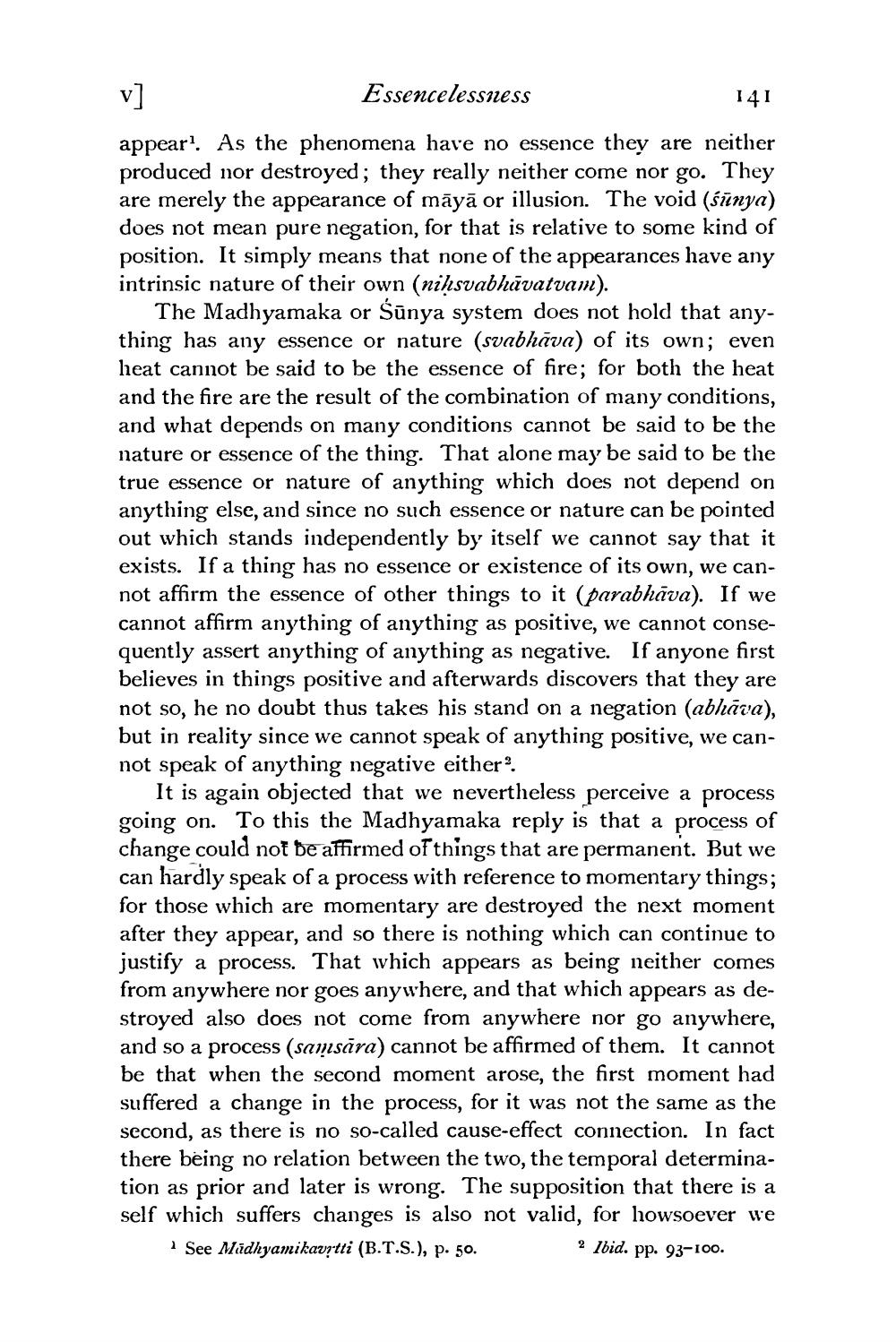________________
Essencelessness
141
appearl. As the phenomena have no essence they are neither produced nor destroyed; they really neither come nor go. They are merely the appearance of māyā or illusion. The void (śünya) does not mean pure negation, for that is relative to some kind of position. It simply means that none of the appearances have any intrinsic nature of their own (niņsvabhūvatvam).
The Madhyamaka or Sūnya system does not hold that anything has any essence or nature (svabhāva) of its own; even heat cannot be said to be the essence of fire; for both the heat and the fire are the result of the combination of many conditions, and what depends on many conditions cannot be said to be the nature or essence of the thing. That alone may be said to be the true essence or nature of anything which does not depend on anything else, and since no such essence or nature can be pointed out which stands independently by itself we cannot say that it exists. If a thing has no essence or existence of its own, we cannot affirm the essence of other things to it (parabhāva). If we cannot affirm anything of anything as positive, we cannot consequently assert anything of anything as negative. If anyone first believes in things positive and afterwards discovers that they are not so, he no doubt thus takes his stand on a negation (abhāva), but in reality since we cannot speak of anything positive, we cannot speak of anything negative either?.
It is again objected that we nevertheless perceive a process going on. To this the Madhyamaka reply is that a process of change could not be affirmed of things that are permanent. But we can hardly speak of a process with reference to momentary things; for those which are momentary are destroyed the next moment after they appear, and so there is nothing which can continue to justify a process. That which appears as being neither comes from anywhere nor goes anywhere, and that which appears as destroyed also does not come from anywhere nor go anywhere, and so a process (samsāra) cannot be affirmed of them. It cannot be that when the second moment arose, the first moment had suffered a change in the process, for it was not the same as the second, as there is no so-called cause-effect connection. In fact there being no relation between the two, the temporal determination as prior and later is wrong. The supposition that there is a self which suffers changes is also not valid, for howsoever we See Mūdhyamikavrtti (B.T.S.), p. 50.
2 Ibid. pp. 93–100.




